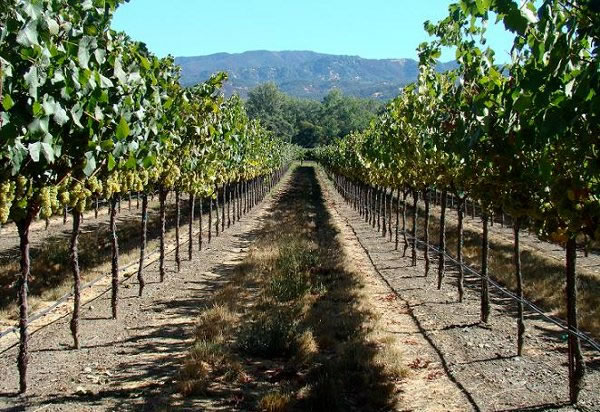How Land-Efficient is Organic Agriculture?


It is a truth universally acknowledged - amongst my friends and relations at least - that organic agriculture is better for the planet. Environmentally-conscious consumers typically are prepared to pay a hefty premium for organic meat and vegetables, whilst baby foods are nearly all organic these days - reflecting the equally widespread belief that organic is healthier due to the absence of synthetic pesticides and fertilisers. Everyone wants the best for their young children, and the best must surely be the most natural.
These beliefs are remarkably persistent, despite strong scientific evidence which refutes them. That natural necessarily equals more safe than artificial is a fallacy. In 2009 a major study for the UK Food Standards Agency found that there was no nutritional or health benefits to organic. Indeed there is strong counter-evidence, as relatives of those who died from eating organic bean sprouts in Germany last year can attest - as I understand it, the bean sprouts likely harboured toxic e-coli bacteria passed on via animal manure added to the parent plant. This use of manure rather than synthetic fertilisers is celebrated by organic proponents, but likely caused dozens of deaths and thousands of injuries in this instance. (Imagine if the sprouts had been GMO!)
I got into an argument on Twitter about this at the end of last week, because I retweeted a document discovered by David Tribe (a.k.a. GMO Pundit) revealing the funding sources behind the proposition for mandatory labelling of GMO foods in California - Big Organic and Big Quacka ('natural health' types) have poured $100,000s into the campaign, far outspending the biotech and grocers campaigns who oppose the proposition. The idea that consumers have a 'right to choose' and therefore GMOs should all be labelled irritates me - so I tweeted that organic should be labelled with an environmental warning due to its relative land-use inefficiency. This was picked up by Simon Singh, whose tweet was called "pathetic" by the Soil Association's presidentMonty Don. (Simon has now blogged about this, posing two important questions for Monty Don to answer - no response as of yet.)
Lots of organic enthusiasts tweeted back at me that I had my facts wrong, or was not considering wider issues. I asked for references, and one proponent sent me the link to a piece in Nature by Verena Seufert, Navin Ramankutty and Jonathan Foley (Nature485, 229-232, 10 May 2012, doi:10.1038/nature11069) - which I had just tweeted myself as support for my own proposal. The paper is entitled 'Comparing the yields of conventional and organic agriculture' and is a meta-study looking at the relevant published literature on yield comparisons world-wide (typically evidence is cited from a single farm). Here is the major conclusion:
The average organic-to-conventional yield ratio from our meta-analysis is 0.75 (with a 95% confidence interval of 0.71 to 0.79); that is, overall, organic yields are 25% lower than conventional.
So I think my case is made. Organic agriculture is significantly less efficient in land-use terms than conventional. (And the picture could be even worse than -34% in comparative terms, given that indirect land use was not taken into account in the Nature study.) On the other hand, there is no compelling scientific evidence that GM crops are in any way more dangerous than their conventional alternatives, and therefore they do not require labelling.
Having said that, starting a fight between organic enthusiasts and those who care about land use is not the point - we need to avoid zero-sum, black-and-white thinking, and take the best from both systems. Moreover, we need to bear in mind trade-offs in all the 'planetary boundary' areas - including water, greenhouse gases (emitted by artificial nitrogen production), eutrophication of water ecosystems due to chemical fertiliser overuse and so on. Verena Seufert puts is very well at the end of her email reply:
In any case, I think that the question of total land required to feed the world conventionally or organically also somehow risks leading into a polarized either-or debate. While in fact I don't think there will be a one-size-fits-all solution. We try to argue in our paper that instead of looking for a 'winner' in the organic vs. conventional debate, we should learn from the successes and failures of both systems. Thats why we try to emphasize the results of our categorical analysis rather than the overall yield difference in our paper. It's much more interesting to learn that organic systems have a relative yield advantage in rainfed systems or that they are often nitrogen limited than to know that overall the yield difference between organic and conventional is around 25%.This allows us to learn that organic management and increased soil organic matter can be beneficial under rainfed conditions or that we need to improve organic nutrient management to increase organic productivity. By learning from these successes and failures of the different farming systems we can improve organic and conventional management or we can create hybrid systems that can potentially balance the benefits of organic & conventional management.
By Mark Lynas, author of "The God Species: How the Planet Can Survive the Age of Humans." Excerpted from The Breakthrough Institute where it appeared in its entirety.


